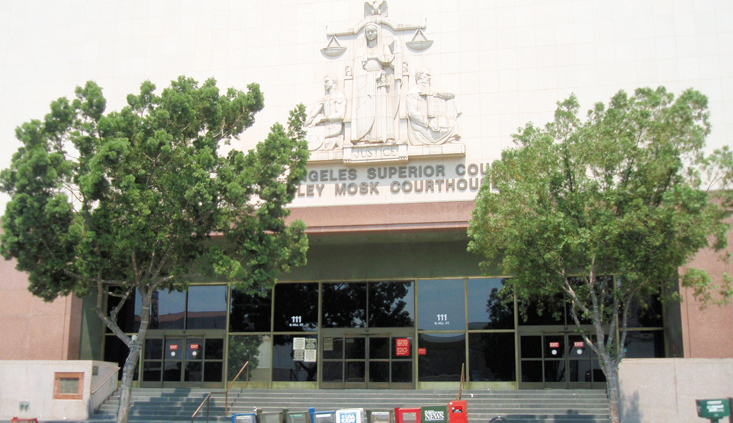Checking in to Los Angeles Superior courtrooms
Attorneys’ failure to properly check in with a courtroom assistant can delay their matters and slow down the court. And please, keep the court informed if you are going to be delayed or cannot appear as scheduled
Law school taught me, among other things, how to think like a lawyer, write like a lawyer (IRAC), research like a Supreme Court law clerk, and, vitally, know the rules of evidence (thank you, Justice Norman Epstein). Law school did not, however, teach me how to actually “check in” for a court appearance. Fortunately, unlike learning how to do an effective voir dire, learning how to check in with court staff when making a court appearance is, essentially, effortless. Since taking the bench, however, I learned that a surprising number of lawyers do not know how to actually check in to court for an appearance.
When I considered writing an article containing tips for attorneys for appearing in court, I spoke to numerous Judicial Assistants and Courtroom Assistants at the Stanley Mosk Courthouse, in several courtrooms on multiple floors. Unexpectedly, court staff reported that, on a daily basis, they encounter problems with at least one lawyer at the check-in. This problem is not something the judge would necessarily know, as staff members handle such issues before the judge comes out and takes the bench.
While an article on “how to check in to court when making your court appearance” may seem too simple a topic, multiple courtroom staff members mentioned this as a daily problem and liked the idea of an article about it.
Daily problems
• First, check the courtroom’s calendar posted on the wall. It will tell you what number your case is, and should also indicate how many of your business cards are needed. This was the first problem mentioned by staff, who reported that, “every day,” at least one lawyer fails to check the calendar.
• When you find your case, write its calendar number on your business card (or cards), as well as which party you represent. If there are multiple parties with multiple counsel on your side, “Defendant” is not very helpful.
• When you hand your card(s) to the courtroom assistant, please also state the calendar number of your case, the case name, and whom you represent. Even if you are a well-known lawyer, on a well-known case, it is still helpful for you to tell staff that your matter is calendar number 3, or 12. Saying, “I’m here on the Jones matter” is not.
• Actually check in: judges may wait to call your case if all of the parties have not checked in.
• Please call the department if you are going to be late, and indicate the estimated time of arrival. Giving the reason helps, too. Are you at the end of a long security screening line outside of the courthouse, or are you stuck on the I5 freeway with a flat tire, still waiting for the tow truck?
• If you are going to leave to go to another department, please let the clerk know, with an estimated time of returning. Better yet, please let the court staff and opposing counsel know the day before of your calendar conflict. Yours might be a relatively quick matter, but because you ducked out to make another appearance, your case has to go in line behind an hour-long argument on a motion for summary judgment. Or, worse, there may be a jury gathering outside in the hallway for a 9:30 a.m. jury trial in another case that might end up being delayed due to your double-booking.
• Likewise, if you are not planning on appearing please let the court staff know, preferably the day before. Staff reported that this, too, occurs every day…some lawyers just do not show up, without ever having told staff.
• Similarly, if your calendared matter is not going forward (such due to settlement or dismissal; or a demurrer is rendered moot by the filing of a first amended complaint, etc.) please let the court staff know. Calling in the same day as the hearing to say, “I filed a request for dismissal yesterday afternoon” is not helpful, particularly as, absent a courtesy copy of the dismissal, the assertion cannot be verified. It can take a few working days for a courtroom to receive a document that was filed at the filing window, or for the document to show up as a scanned document.
• Anticipate that the court will make a ruling, or schedule a new appearance. Some attorneys bring no pen, no paper, or no calendar, to court.
Other tips from staff
• When you are calling to reserve a motion hearing date, please describe what the motion is. Merely asking to reserve a date for a “motion to compel” is not helpful. Is it a motion to compel further responses on four different sets of discovery, or just a motion to compel form interrogatories where there has been no response?
And, one from me:
• Please be professional and civil to court staff.
Thank you!
Elizabeth R. Feffer

Judge Elizabeth Feffer served on the Los Angeles Superior Court for 13 years, presiding over more than 75 civil jury trials, more than 500 civil bench trials, hundreds of evidentiary hearings, and numerous settlement conferences. Now a mediator, arbitrator, referee, and private judge with ADR Services, Inc., Judge Feffer handles a diverse range of complex cases.
Copyright ©
2025
by the author.
For reprint permission, contact the publisher: Advocate Magazine

